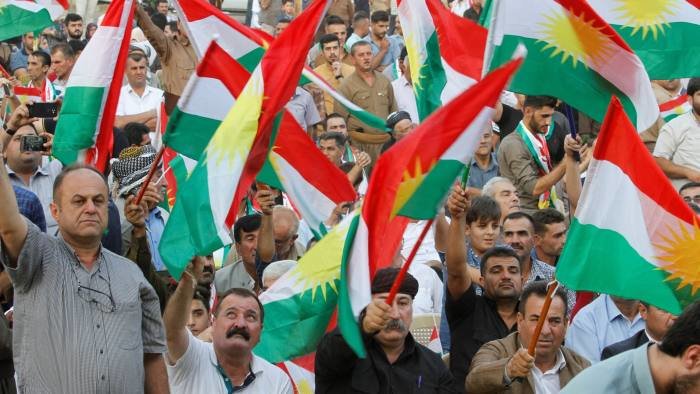Iraq’s Kurdistan referendum: what to expect for oil markets

Against the opposition of Iraq’s central government and despite the warning signals from much of the international community, thousands of Iraqi Kurds headed to polls on September 25 for a referendum on independence.
An action which many believe could raise serious issues for Iraq’s economy in the upcoming months and also result in some short and/or long term changes in the oil market.
What is at stake for Iraqi government?
With the Kurds claiming independence, Iraq’s government which is currently wrestling to rebuild its energy industry after decades of conflict and war could be facing further instability in the region.
Since 2014 when the Iraqi forces retreated from Kirkuk in war with Daesh, Kurds have been controlling the northern regions in Iraq, and they have been also in conflict with the central government over the city of Kirkuk which is the home for some of Iraq’s oldest producing oil fields.
Northern Iraq is believed to hold about 45 billion barrels of crude reserves, more than OPEC member Nigeria.
According to Bloomberg, the region pumped about 544,600 barrels of oil a day in 2016 and is expected to boost output to 602,000 barrels this year making it a significant contributor to the country’s economic growth.
Although the Kurds get a 30-percent share from their controlled regions’ oil revenues, recent drops in oil prices have imposed economic pressures on KRG and they haven’t been able to pay their dues to the oil companies operating the fields in the region. This situation added to the territory conflict over Kirkuk has led the KRG to claim for a higher and “more just” share of the country’s oil revenues.
That means if the referendum proceeds further, Iraq is going to lose a great deal of its oil revenues to the KRG.
Referendum and the oil market
The consequences of the KRG recent movements won’t be limited to Iraq and it could also affect the neighboring countries and also the oil market to some extent.
Even though the Kurds make up only about one-fifth of Iraq’s 38-million population, more than 30 million Kurds are also living in Iran, Syria and Turkey’s border cities with the country and this could raise serious issues for them especially Iran and Turkey.
Turkey fears the independence vote could result in insurgence among its own Kurd population and also a probable military response from Baghdad could trigger a refugee crisis toward Turkey and Iran’s borders.
Turkish President Tayyip Erdogan threatened on Monday to cut off the pipeline that exports oil from northern Iraq through Turkey’s port of Ceyhan.
Erdogan’s thread was immediately mirrored on the oil markets as a 2-year high jump in oil prices.
“Oil prices took a breather on Tuesday after Brent crude earlier rose to a 26-month high, supported by Turkey’s threat to cut crude flows from Iraq’s Kurdistan region to the outside world,” Reuters reported on Tuesday.
Iran also called the vote “illegal and illegitimate” and closed its borders with the Kurdish region at the request of Iraq.
Considering the situation, it appears that intensification of the conflict between the central government and KRG will disrupt a great deal of Iraq’s oil exports in the future and that consequently could change the region’s geopolitical and economic equations.
However, Iranian oil expert and market analyst Mahmoud Khaghani believes that there are certain economic and energy ties established between the conflicting parties in the region that should be considered before jumping to conclusions.
“Regional and political conflicts can quickly boost oil prices, as they did Monday, but there are so many aspects to be considered…. such conflicts are not long lasting and the prices can just as quickly go back down,” he told the Tehran Times in a telephone interview on Wednesday.
Khaghani further explained that being in a land lock, Kurds cannot ignore neither their neighbors nor the central government since they will eventually need their neighbors to send their oil off to the world markets.
“Turkey has also established rather strong economic and energy ties with Kurds and shutting them completely won’t be in line with their interests as well”, he noted.
“We should expect an agreement between Iraq’s central government with Kurds and even between KRG and Turkey soon, something that in my opinion is inevitable,” he added.
The analyst believes that the oil market’s primary reactions to the referendum should be considered merely emotional and eventually in near future the prices will settle down again.
“The trend is not upward in my opinion, what market is experiencing is a short term shock and the prices will come down again soon,” he concluded
Considering all aspects, it appears that KRG will be able to use the referendum only as a pressure lever against the central government to get more share of the country’s oil revenues.
Although the Kurd's ballot may have had no immediate impact on oil supply so far, but it will at least mirror some short term effects on the oil market and also on both sides’ economies in near future. Something that we should wait to see.
Leave a Comment